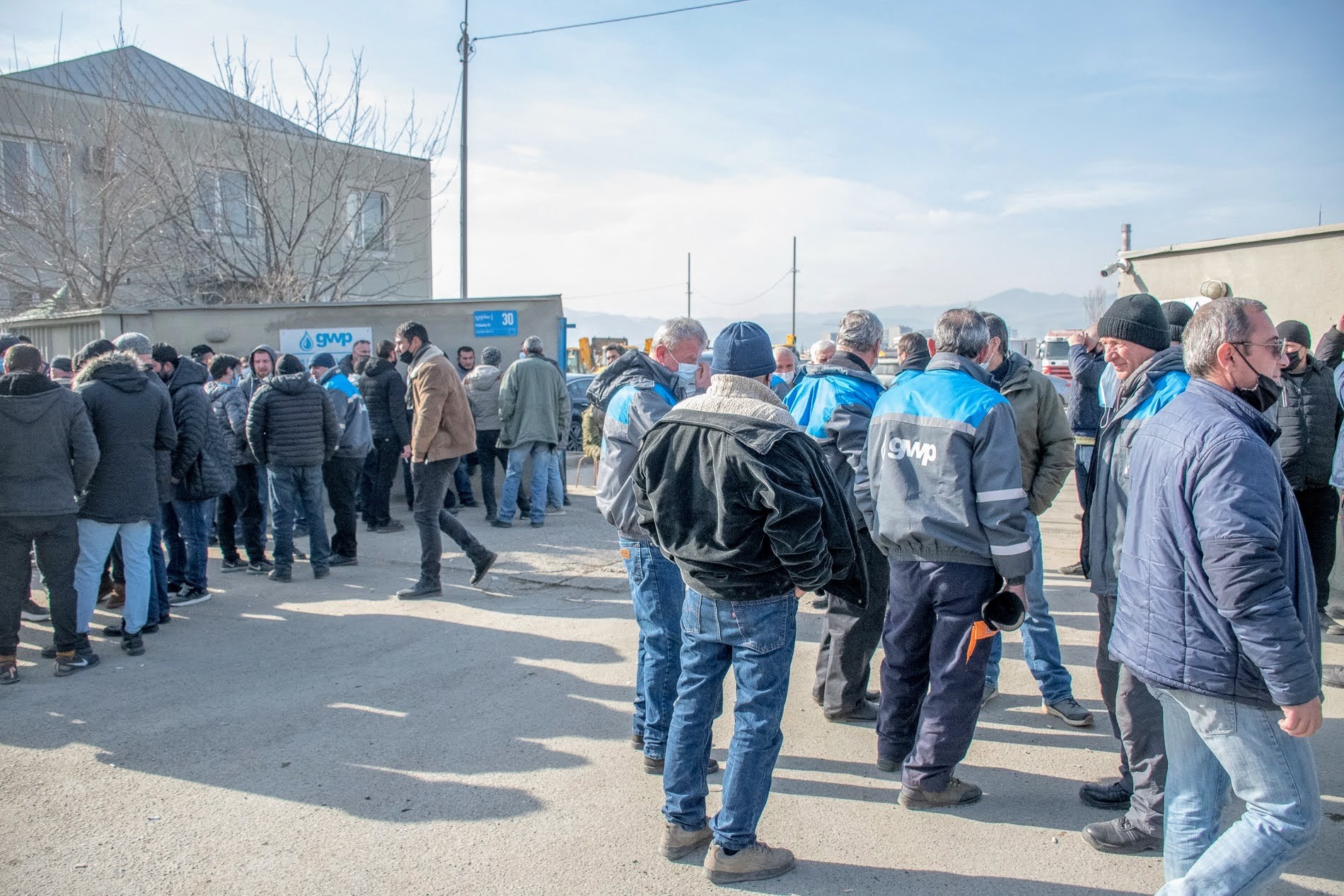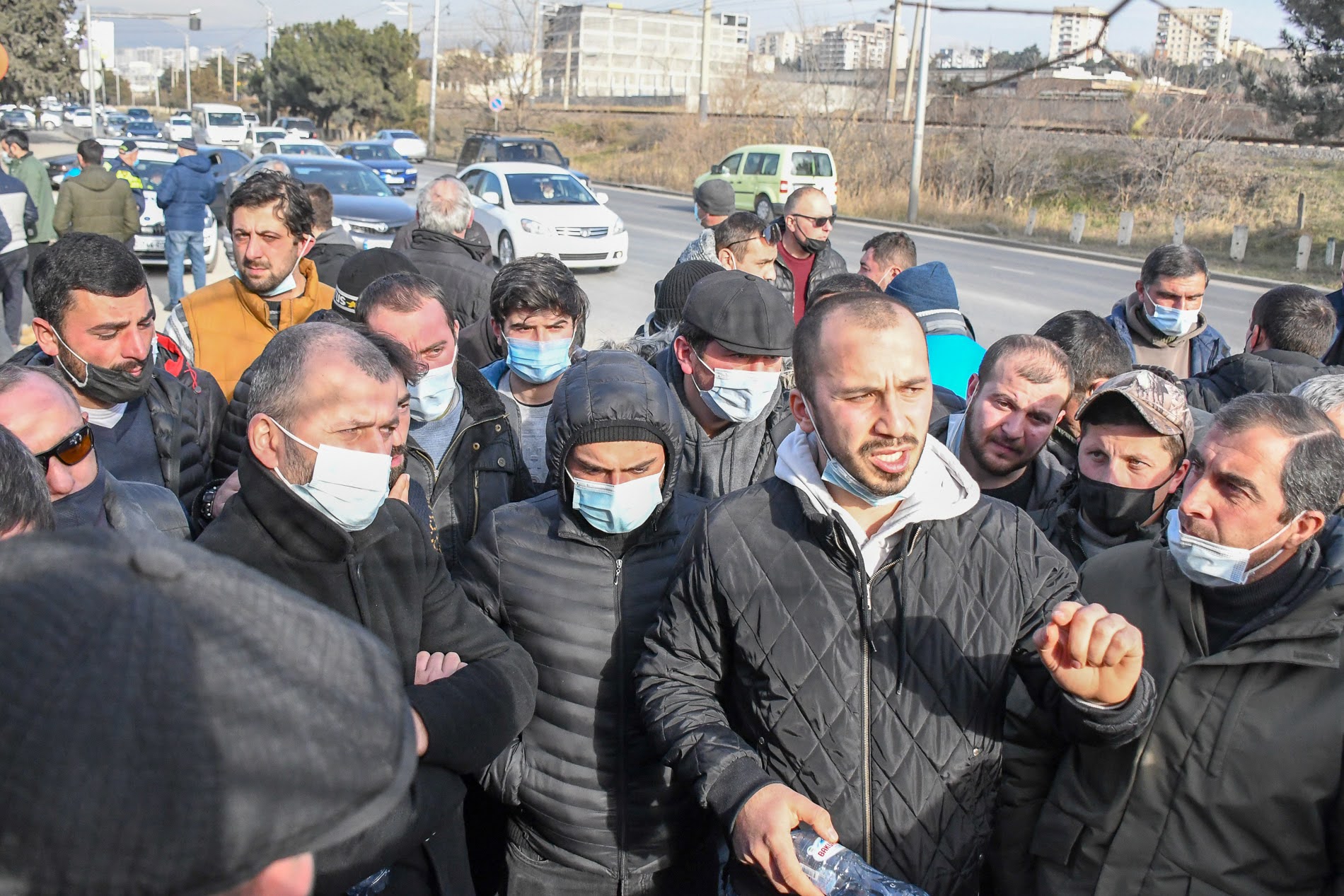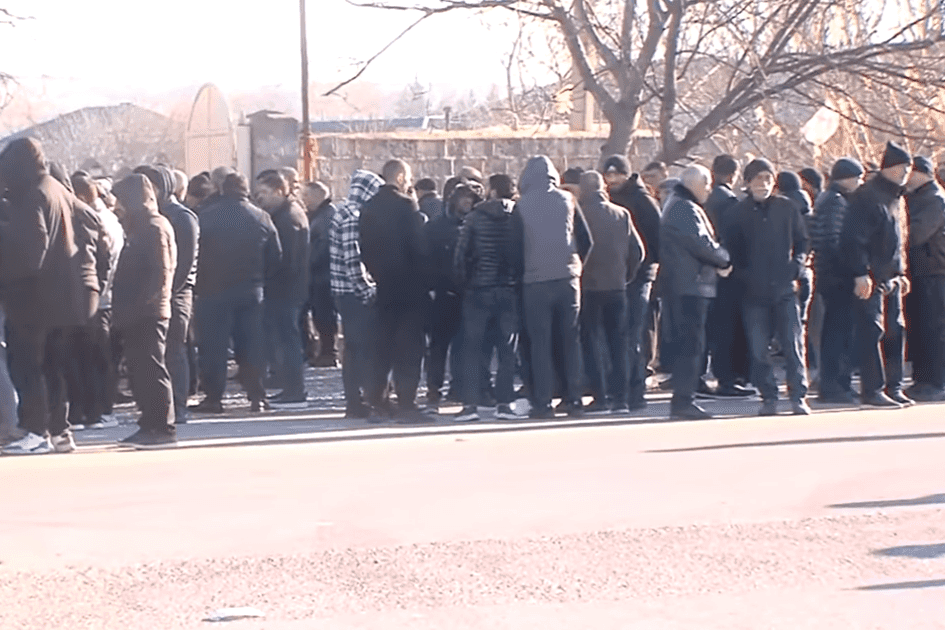
Drivers and heavy vehicle operators responsible for maintenance of the water system in the Georgian capital Tbilisi are on their fourth day of striking over their labour contracts.
Georgian Water and Power (GWP), a water and wastewater distribution company that claims to supply over 510,000 customers in the capital and adjacent Mtskheta are facing protests from short-term contractors, some of whom say they have been employed by the company for years, since 25 January.
On Thursday, several dozen workers continued to picket outside the company office in Tbilisi insisting that none of the workers from GWP’s Transport Department — about 380–400 people — would work unless their demands were met.
The workers, who operate dump trucks, tractors, excavators and other heavy equipment for repair and cleaning works, have demanded better employment contracts with raised and equal salaries, health insurances, and paid holidays.
According to several drivers OC Media spoke with on Wednesday, the company raised hourly net salaries from ₾3.70 to ₾4.70 a year and a half ago only for some of the workers, whose duties were similar.
The protest resumed on Thursday after several rounds of unsuccessful negotiations.
In the early stage of the dispute, the Georgian Union of Workers of Service Sector, Local and Communal Services, part of the larger Georgian Trade Unions Confederation, tried to mediate between the company and the workers.
In conversation with OC Media, the union’s Akaki Gvalia said that the workers did not accept the company’s compromise offered on 26 January to make the hourly salaries equal among the drivers. Later that day, the drivers received SMS messages from GWP warning them that they would be dismissed unless they resumed work.
According to many of the drivers, their work varies between 24-hours shifts, normal hours, and some periods when they are temporarily not summoned to work at all.
‘I have not been on vacation for four years’, 37-years-old Guram Palashvili, a truck driver who usually transports materials for asphalt, told OC Media.
List of 13
On Wednesday, the workers claimed that the company had promised that all of the workers would be allowed to keep their jobs except for 13 of them, whom the drivers described as the ‘most active’ leaders of the strike.
‘They tell us directly that either 387 will continue to work and 13 will end up unemployed or “every one of you will be unemployed” ’, one worker said of their meeting with the GWP management team.

In an email on Wednesday, GWP told OC Media they had convinced the drivers to continue to work — addressing none of their original labour demands — except for a ‘small group who engaged in aggressive, violent, and other unlawful activities’.
The company did not specify the nature of the accusation.
OC Media have also approached the company to respond to accusations by workers that during the negotiations on 26 and 27 January, the company’s management rebuked them for communicating with the media.
One worker who asked to remain unnamed told OC Media he was ‘directly pressured’ and accused by the company of ‘inciting public panic’, after he warned in a TV report that their protest would affect Tbilisi’s water supply system.
While sharing few details about the contested employment terms of the drivers, GWP underlined several times in their statements that Tbilisi’s water supply would not be endangered by the strike.
Short term contracts
As employees in Georgia are required to go through 21-days mediation prior to announcing a strike, the protest by the GWP workers remains outside of the law. However, as Davit Omsarashvili from Solidarity Network, a local union, notes, ‘a strike is almost never a “spontaneous” act’.
‘Everything starts with talks, complaints and disputes that continue for years… Workers usually work until it’s virtually impossible to continue to do so. Hence, a strike is, and should never be, a surprise for an employer, especially when hundreds of workers make such a decision’.
The exact rights enjoyed by the GWP drivers, including the right to strike, also remain murky as at least some of them have claimed to have worked — some for years — on the basis of frequently renewed short term contracts. Such contracts exclude them from many of the stronger labour protections in place, even under recently beefed-up labour laws.
Several workers protesting outside the GWP office on Wednesday told OC Media that their ‘service provision’ contracts were renewed every three or six months despite years working for the company.
‘There is a need to study how this fits in with the practice provisioned by the Georgian legal system and court rulings’, Omsarashvili said.
‘Needless to say, no one should lose their job for staging a protest. Preserving the jobs of workers is even more important during the pandemic’.









